Manipur - The Land and its People
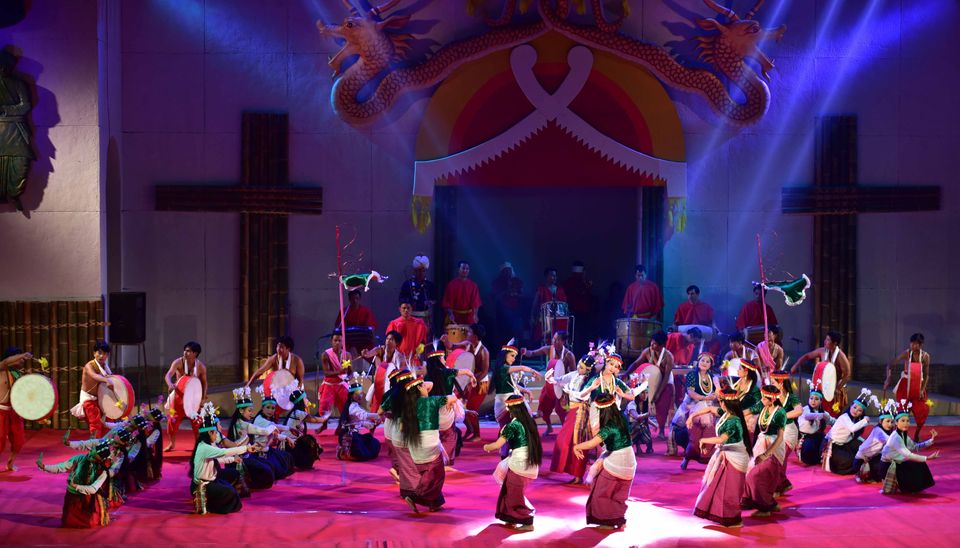
Geographical location and terrain
Manipur is a hilly state of India located at the northeast border, adjacent to Myanmar. Manipur has 16 administrative districts, and Imphal is its capital. According to the 2011 census conducted by the Government of India, the population of Manipur was 2,855,794. We project that the population as of 2023 is over 3.6 million.
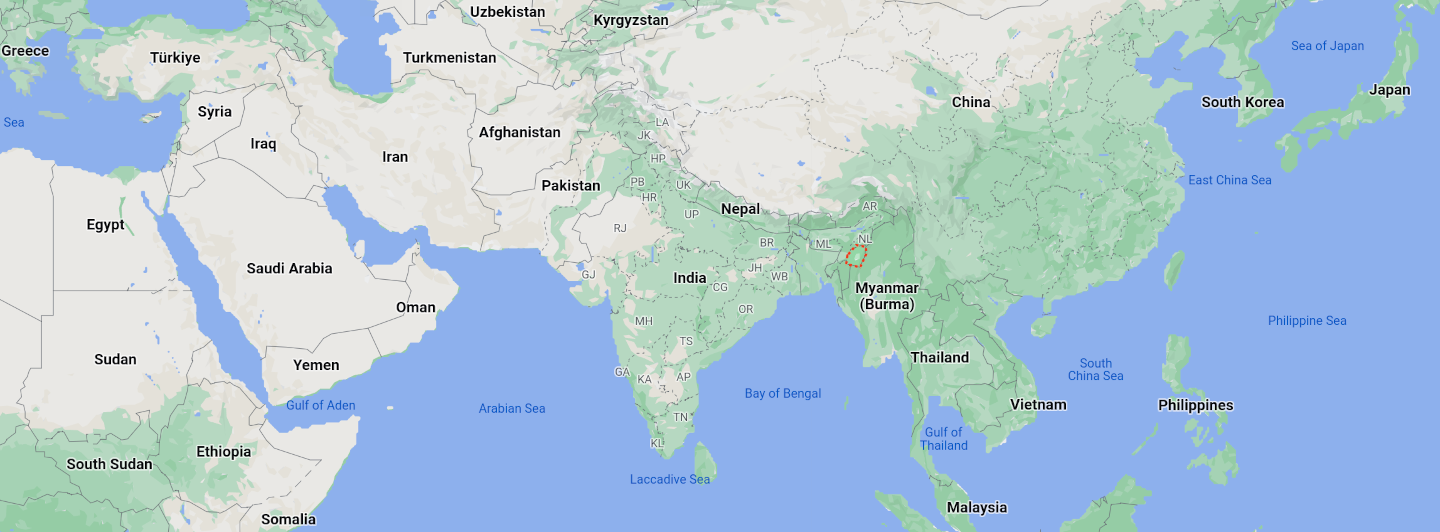
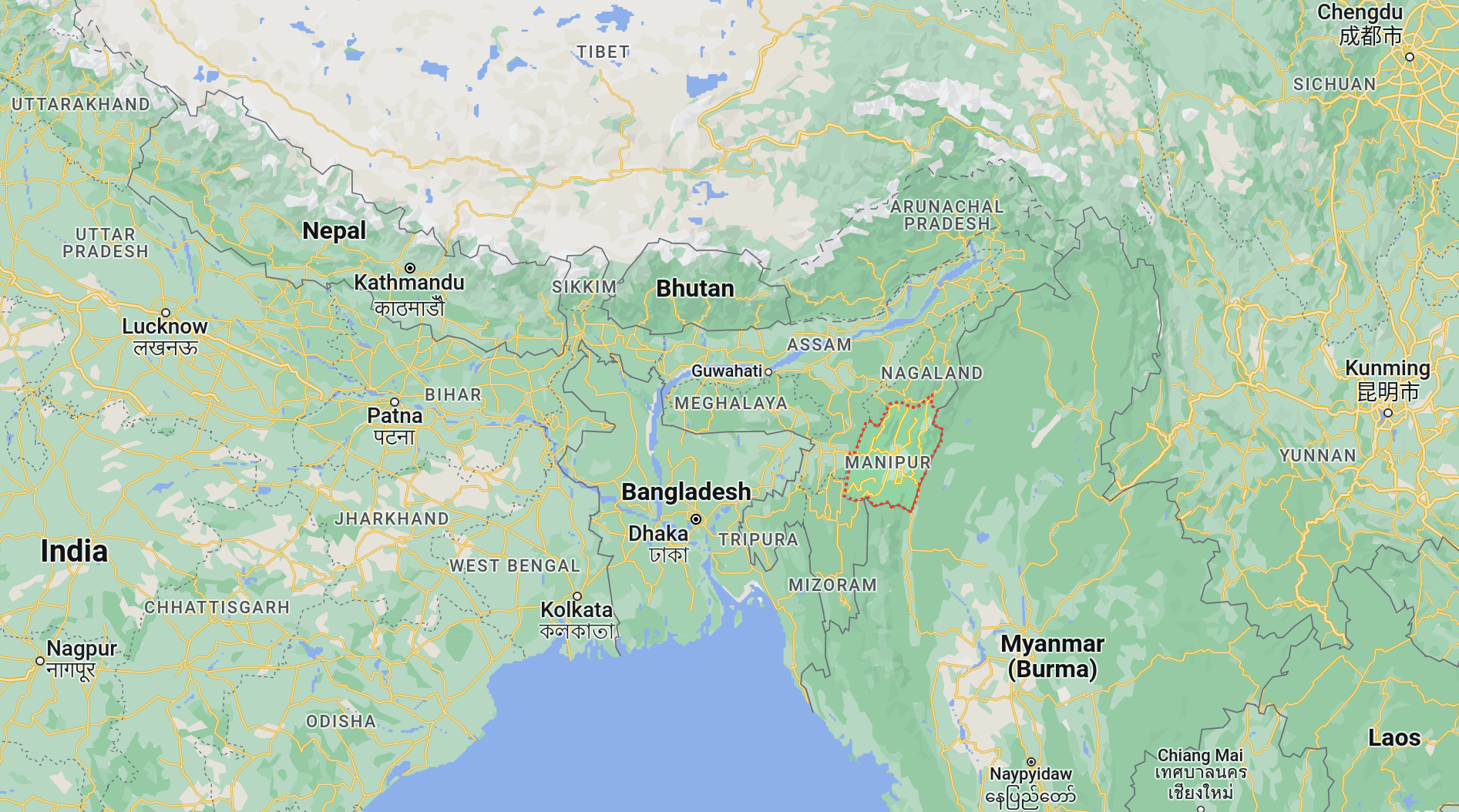
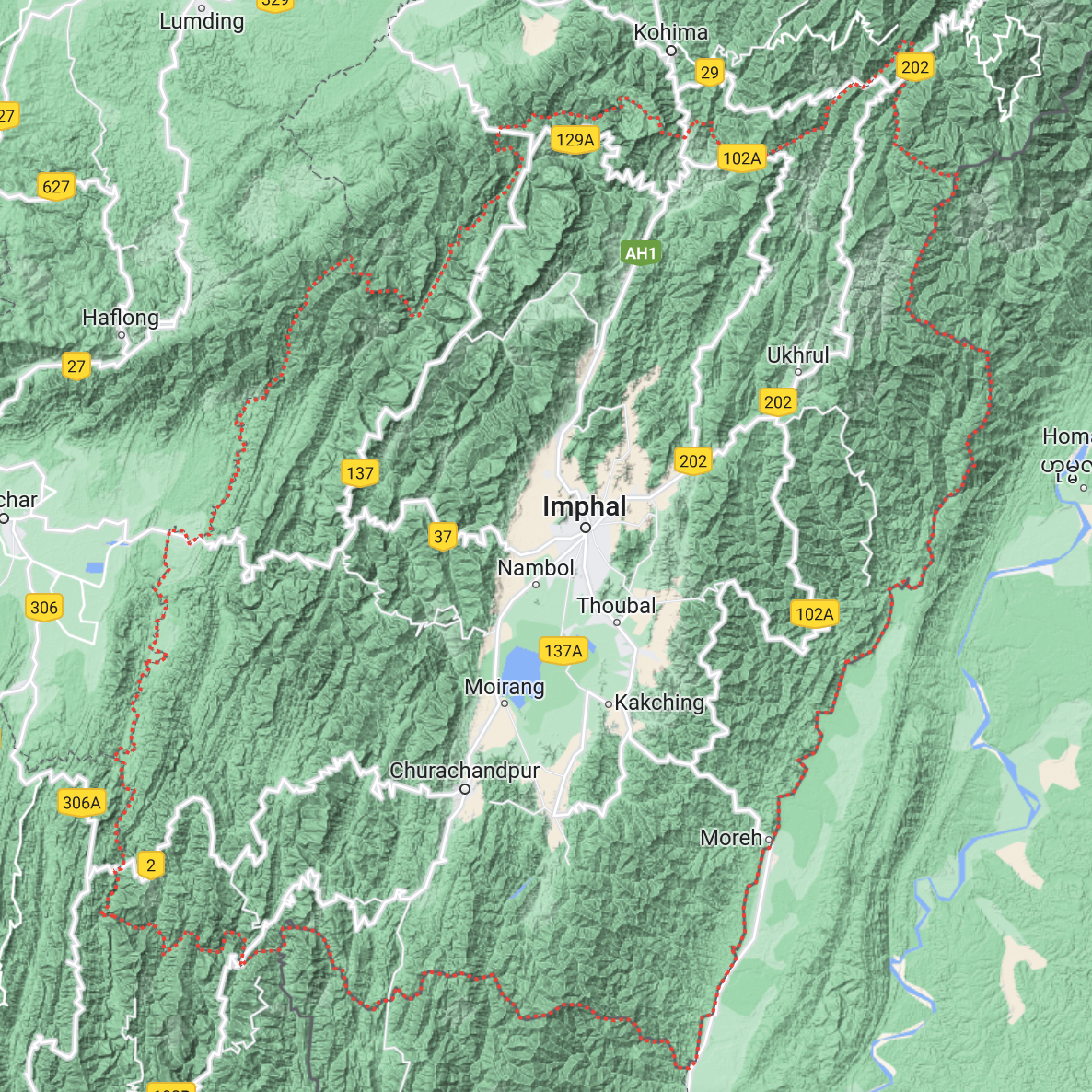
Districts of Manipur
The following are the districts of Manipur, as of August 2023.
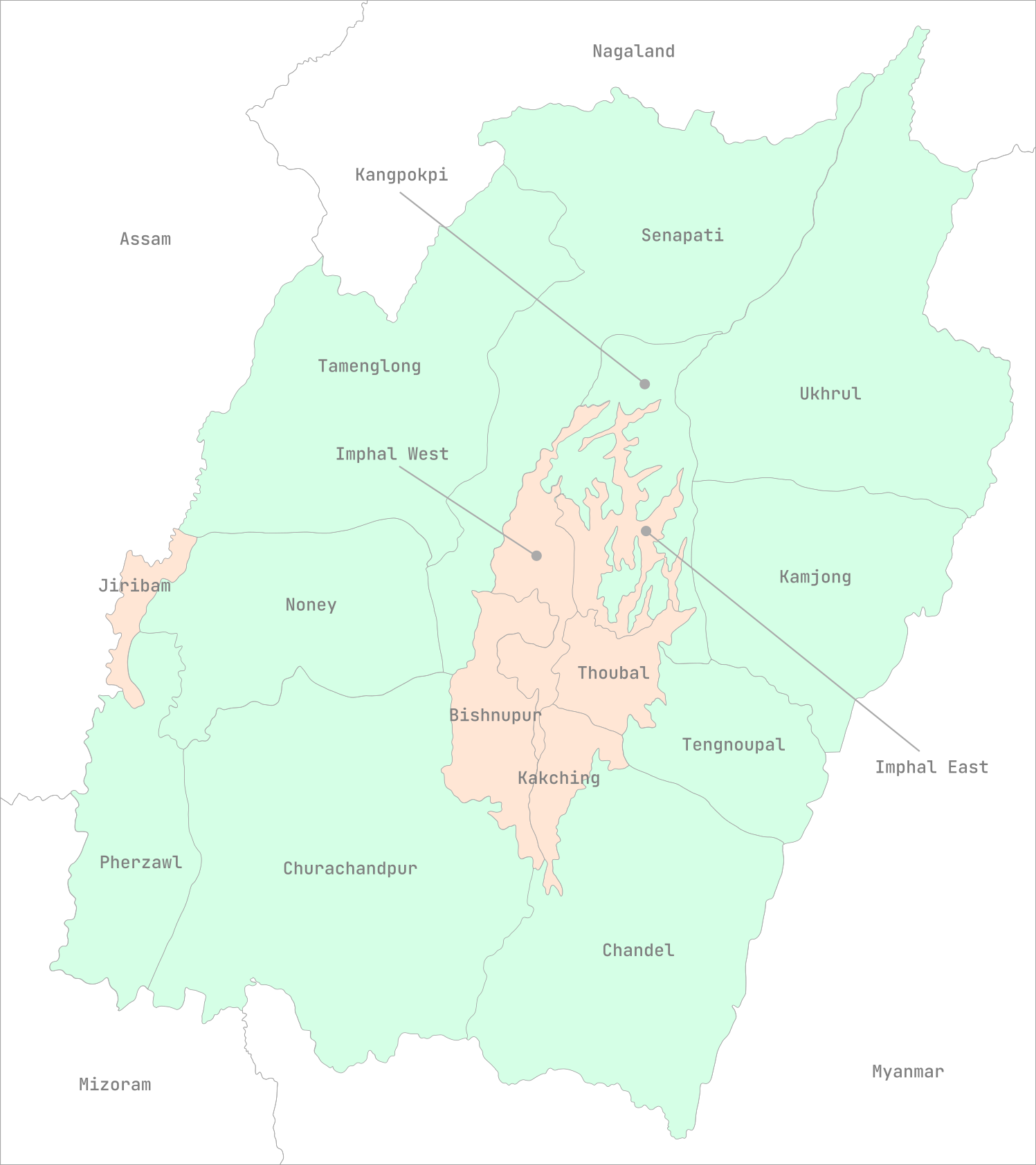
To allow analysis with older data, these districts are sometimes combined together to reflect the districts in 1991:
| Bishnupur | Bishnupur |
|---|---|
| Chandel | Chandel and Tengnoupal |
| Churachandpur | Churachandpur and Pherzawl |
| Imphal | Imphal East, Imphal West, and Jiribam |
| Senapati | Senapati and Kangpokpi |
| Tamenglong | Tamenglong and Noney |
| Thoubal | Thoubal and Kakching |
| Ukhrul | Ukhrul and Kamjong |
A brief history of Manipur
The following is a brief history of Manipur:
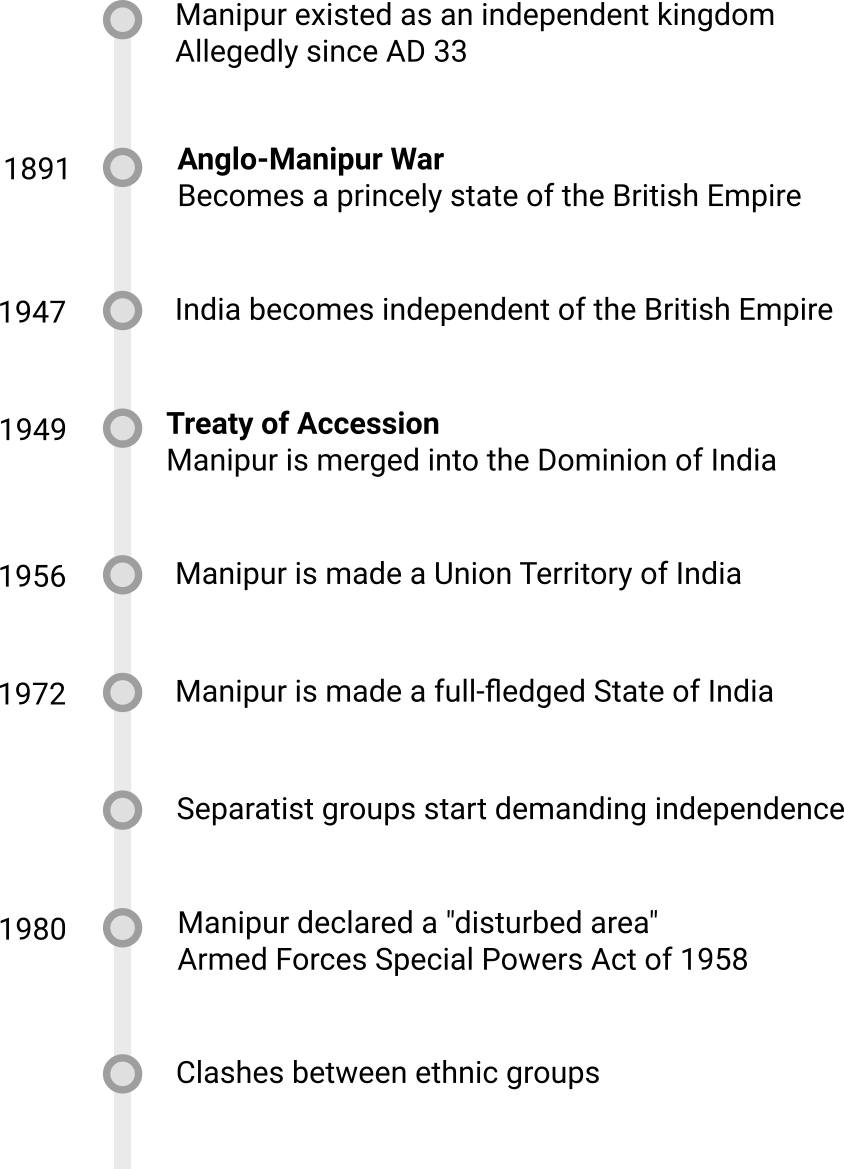
References:
- The History and Culture of Manipur (2nd edition) by Saroj Nalini Arambam Parratt and John Parratt, Hayloft Publishing, 2011, ISBN: 978-1904524854.
- History of Manipur (2nd edition) by Jyotirmoy Roy, Firma KLM, 1999, ISBN: 978-8171020454.
- The Court Chronicle of the Kings of Manipur by Saroj Nalini Arambam Parratt
- Vol. 1 - Routledge, 2005, ISBN: 978-0415344302.
- Vol. 2 - Foundation Books, 2009, ISBN: 978-8175966383.
- Vol. 3 - Foundation Books, 2013, ISBN: 978-9382264989.
See https://www.hrw.org/reports/2008/india0908/index.htm for a brief history of violence in Manipur.
Ethnicities
The population of Manipur consists of several major ethnicities, each with its distinct culture, language, and traditions. Here are some of the prominent ethnic groups in Manipur:
-
Meitei: The Meitei people are the majority ethnic group in Manipur and form the largest community in the state. They have their own language, Meiteilon, and are known for their rich cultural heritage, traditional arts, and Manipuri dance.
-
Naga: The Nagas are a significant ethnic group in Manipur, belonging to various Naga tribes. Some of the Naga tribes found in Manipur include Tangkhul, Mao, Maring, Poumai, Zeme, and Thangal. They have distinct languages, customs, and traditional practices.
-
Kuki: The Kuki people, also known as Chins, are another major ethnic group in Manipur. The Kuki community is further divided into several sub-groups, including Thadou, Paite, Hmar, Gangte, Zou, Simte, and more. They have their languages and cultural practices.
-
Pangal (Manipuri Muslim): The Pangal community, also known as Manipuri Muslims, comprises the Muslim population of Manipur. They have a distinct cultural identity that reflects a blend of Islamic traditions and Manipuri culture.
-
Mizo: The Mizo people, also known as Lushai, are an ethnic group found in Manipur, Mizoram, and other neighboring regions. They have their language, Mizo, and have cultural ties with the Mizoram state.
-
Kom: The Kom community is an ethnic group residing primarily in the hill areas of Manipur. They have their language, Kom, and have a distinct cultural identity.
These are some of the main ethnic groups in Manipur, but the state is also home to other smaller communities and tribes, each contributing to the cultural and ethnic diversity of the region.
Population distribution
The following shows the 1991, 2001 and 2011 population of the various districts of Manipur based on the census data collected by the Government of India (see Data Sources below).
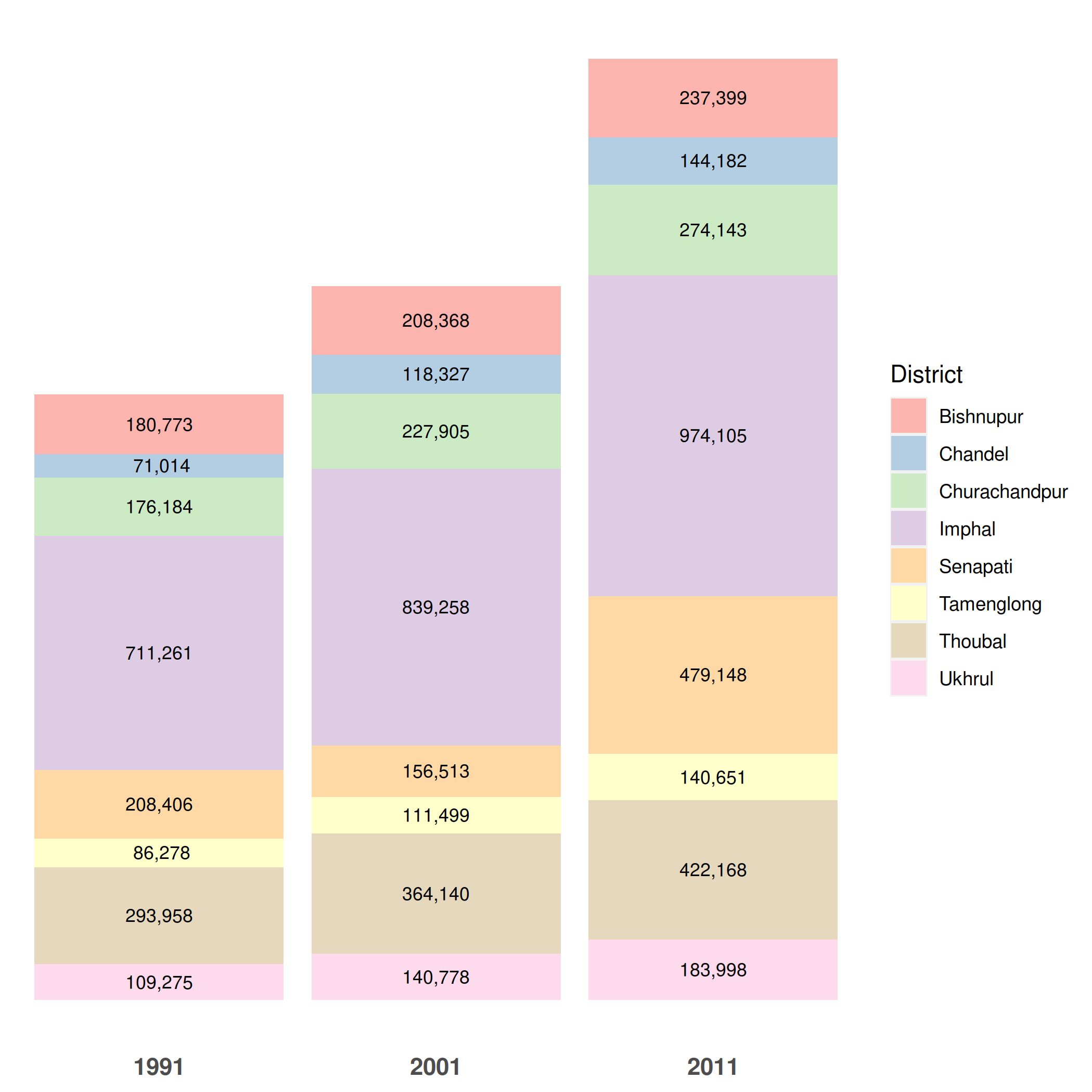
The following shows the population for scheduled tribes, scheduled castes and other ethnicities combined.
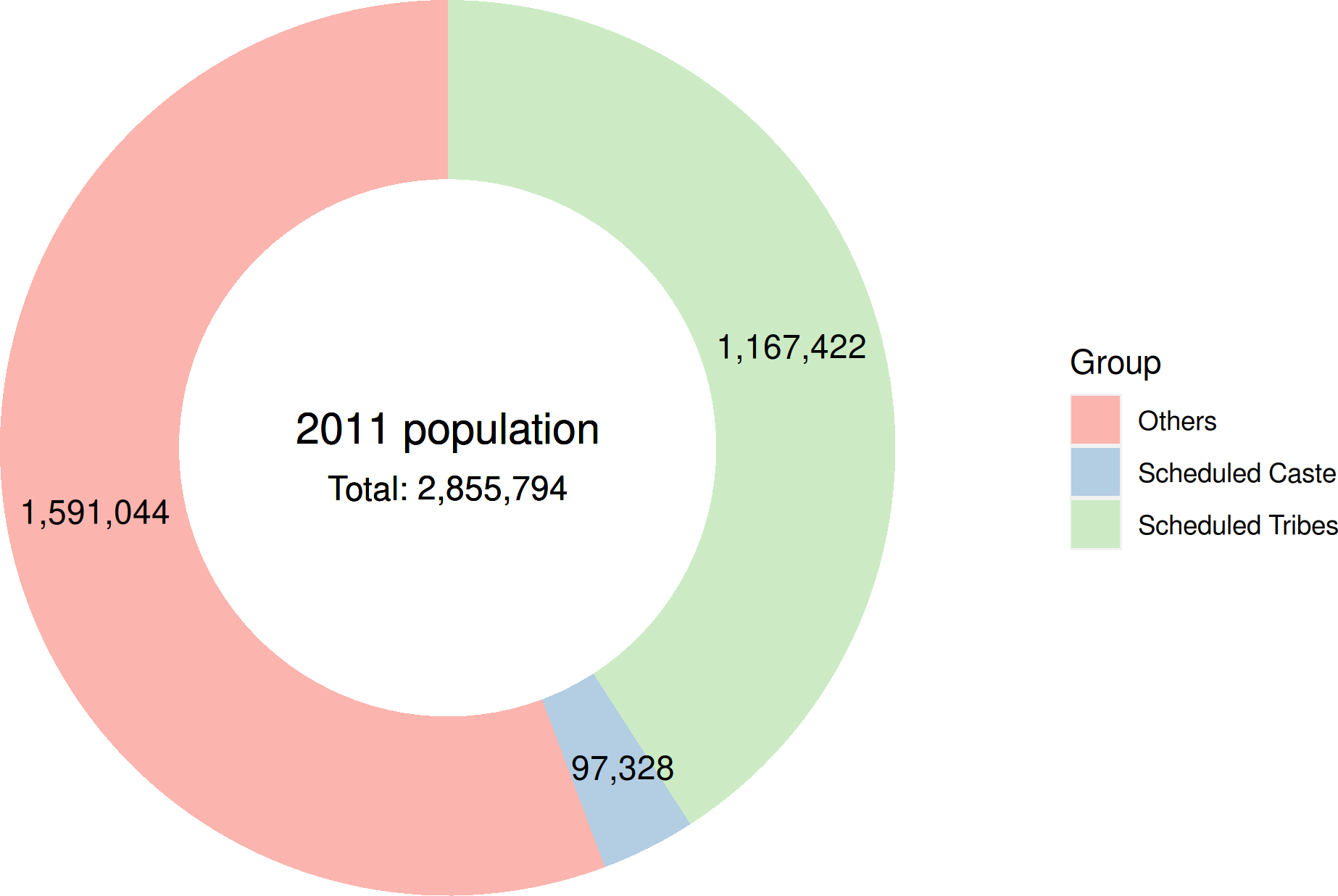
The following shows the population as percentage of total population for scheduled tribes, scheduled castes and other ethnicities combined.
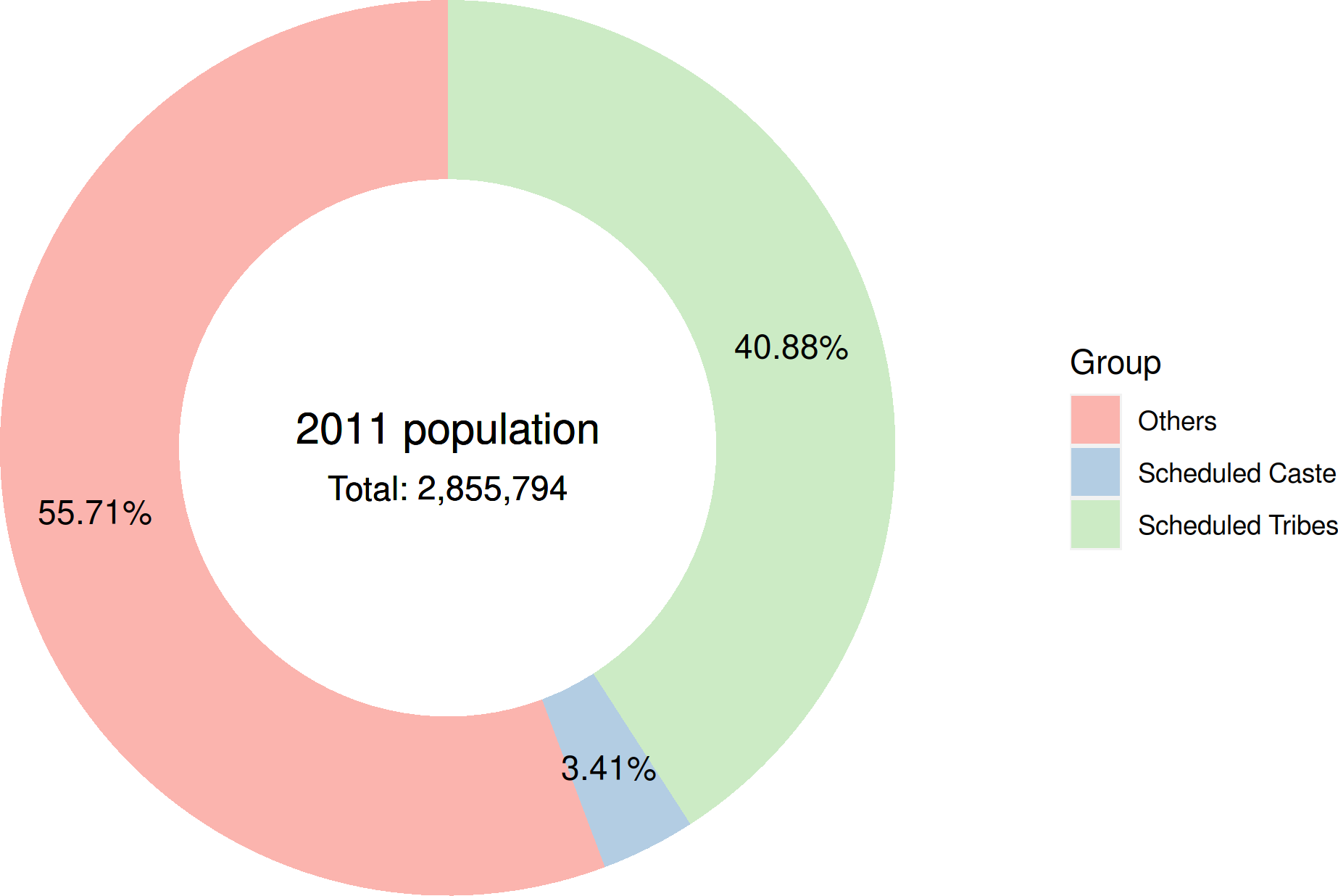
Population by ethnicity
For the 2011 census, the Government of India also recorded the population distribution by ethnicities for the scheduled castes (SC) and the schedule tribes (ST).
The following plots distribution for scheduled tribes:
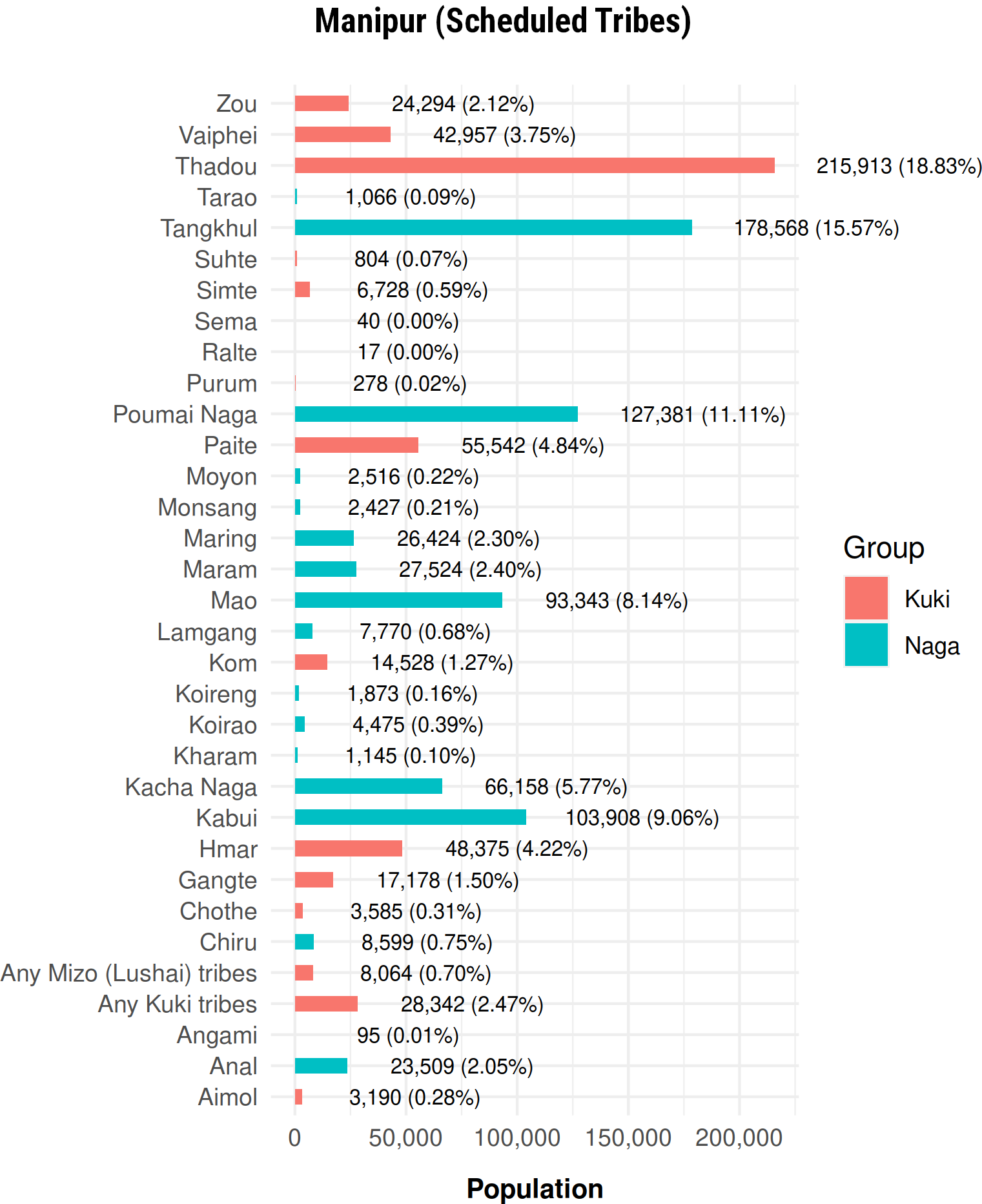
The following plots distribution for scheduled castes:
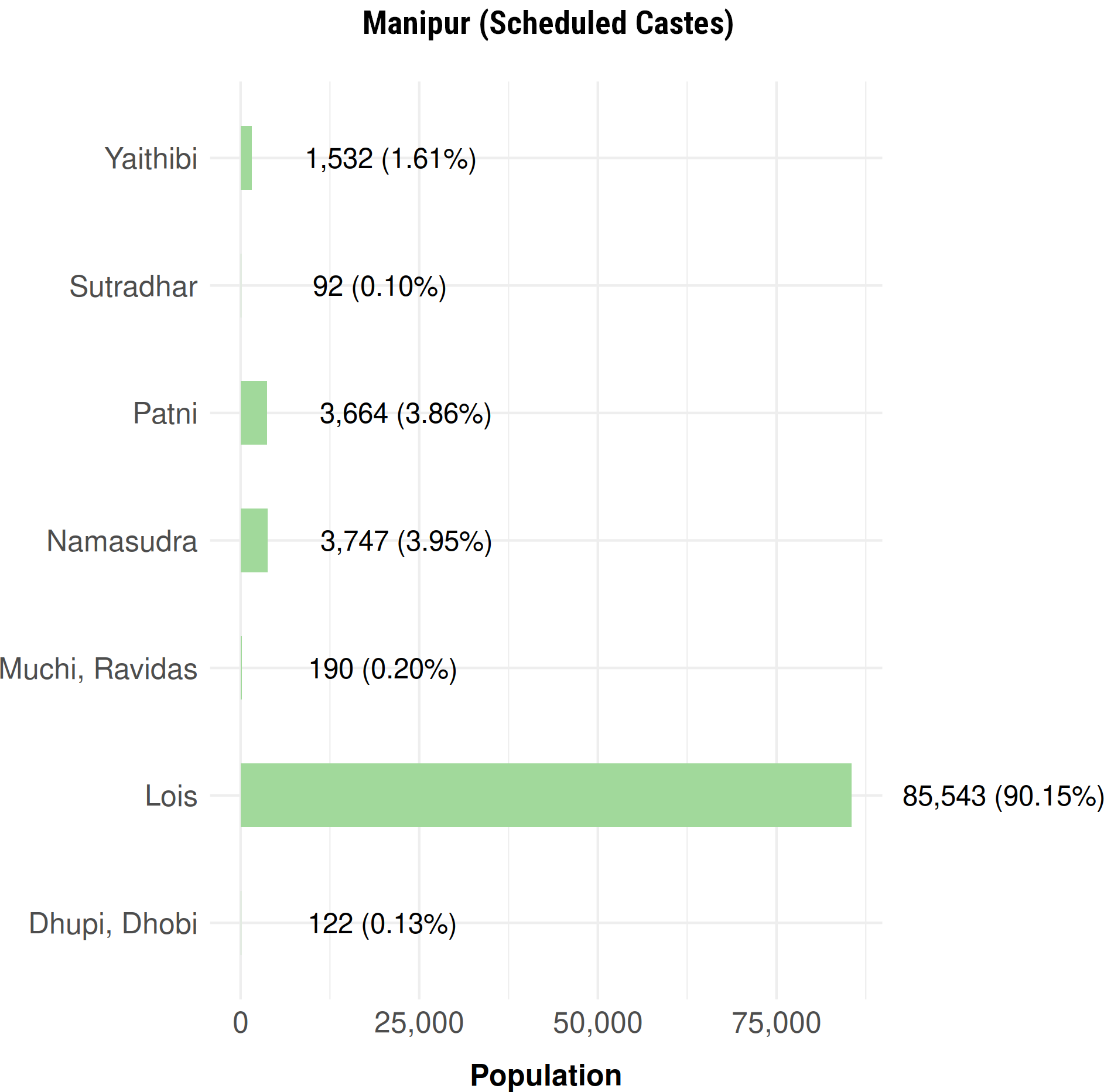
Population by religion
The following shows the population by religion for 2001 and 2011 (excluding Sikh and Jain; data provided in table below). We could not find population by religion data in the 1991 census.
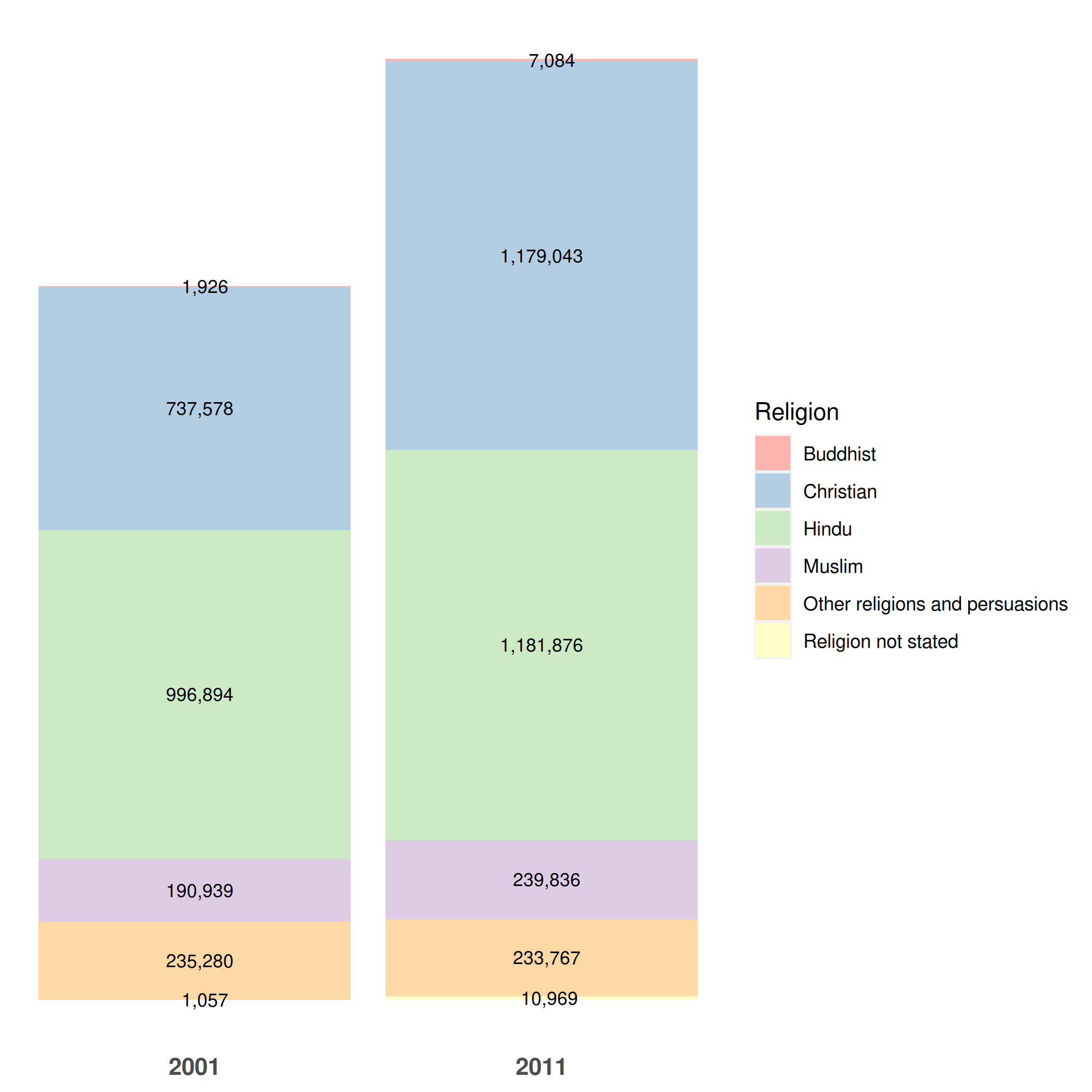
The following table provides population counts for 2001 and 2011.
| 2001 | 2011 | |
|---|---|---|
| Hindu | 996,894 | 1,181,876 |
| Christian | 737,578 | 1,179,043 |
| Muslim | 190,939 | 239,836 |
| Other religions and persuasions | 235,280 | 233,767 |
| Religion not stated | 1,057 | 10,969 |
| Buddhist | 1,926 | 7,084 |
| Jain | 1,461 | 1,692 |
| Sikh | 1,653 | 1,527 |
The following shows population distribution by religion as percentage of total.
| 2001 | 2011 | |
|---|---|---|
| Hindu | 46.01% | 41.39% |
| Christian | 34.04% | 41.29% |
| Muslim | 8.81% | 8.40% |
| Other religions and persuasions | 10.86% | 8.19% |
| Religion not stated | 0.05% | 0.38% |
| Buddhist | 0.09% | 0.25% |
| Jain | 0.07% | 0.06% |
| Sikh | 0.08% | 0.05% |
The following shows change in population by religion from 2001 to 2011. We show the population count for the change, and also the percentage change relative to the 2001 population.
| 2001 | 2011 | Count | Percentage | |
|---|---|---|---|---|
| Hindu | 996,894 | 1,181,876 | 184,982 | +18.56% |
| Christian | 737,578 | 1,179,043 | 441,465 | +59.85% |
| Muslim | 190,939 | 239,836 | 48,897 | +25.61% |
| Other religions and persuasions | 235,280 | 233,767 | -1,513 | -0.64% |
| Religion not stated | 1,057 | 10,969 | 9,912 | +937.75% |
| Buddhist | 1,926 | 7,084 | 5,158 | +267.81% |
| Jain | 1,461 | 1,692 | 231 | +15.81% |
| Sikh | 1,653 | 1,527 | -126 | -7.62% |
Data sources
The following are the population data files provided by the Government
of India (https://censusindia.gov.in/).
-
Population by district
-
2011 Census
-
2001 Census
-
1991 Census
-
-
Population by ethnicity
-
2011 Census
-
2001 Census
-
1991 Census
-
-
Population by religion
- Data unavailable for 1991 census.
- 2001 Census
- 2011 Census
